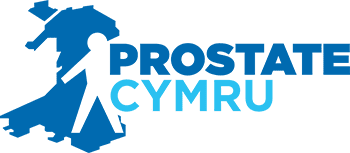Elective report by Aled Rees – Recipient of the Ray Murray Travelling Fellowship
Hi, my name is Aled! I am a final year medical student graduating from Cardiff University this year. In February, I was fortunate enough to be the recipient of the Ray Murray Travelling Fellowship, awarded by Prostate Cymru. The Ray Murray Travelling Fund is a bursary aimed at providing an incentive for medical students to undertake an elective project within the field of urology, with the hope that more students will go on to consider undertaking specialty urology training later in their careers. Having had the most incredible experience on my elective I would like to share my experience with you!
Following some interesting teaching and clinical experiences in the topic of urology throughout my time at medical school I was keen to pursue an elective project within the field. Hearing about the Ray Murray Travelling Fund further inspired me to plan an elective project that I felt would provide me with a unique opportunity in a field in which I already had a great interest in. This also led me to do some of my own reading, particularly within the field of prostate cancer.
I soon became interested in the use of PET imaging in the diagnosis and management of prostate cancer. Having sought advice from Professor Kynaston (Professor of Urology at UHW) and the PET imaging centre at UHW I was put in contact with Dr Matt Cooperberg (Professor of Urology at University of California San Francisco [UCSF]). The possibility of arranging an elective project with a world-leading urological surgeon was a very exciting prospect.
Having read work published by Dr Cooperberg I was particularly interested in learning more about the use of an exciting new imagine technique (68Ga-PSMA PET) for the diagnosis and management of prostate cancer which is not yet available at UHW. Given that prostate cancer affects 1 in 8 men in Wales and its incidence continues to rise with a growing elderly population I felt that my elective project was not only highly important but also relevant to the population of Wales.
Following an exchange of emails and completing the necessary paperwork I was all set to join the UCSF urology team for 5 weeks at the UCSF Bakar Cancer Hospital in the Mission Bay area of San Francisco. It was fair to say that I was quite excited!
Having spent a couple of days recovering from the jet lag and getting used the surroundings of my very hilly neighbourhood in San Francisco, I arranged to meet with Dr Cooperberg the following Monday afternoon. I was greeted with a warm welcome and thrown straight into the OR (operating room) to watch my first robot assisted prostatectomy. Within half an hour I was sat at the second console watching Dr Cooperberg at work on the impressive 3D screen. After an afternoon’s operating he introduced me to other members of the team who I would be spending time with over the next few weeks.
One of the clinical fellows working in Dr Cooperberg’s team also had a special interest in PET imaging, and we discussed its use in the NHS in Wales compared with that of the private health care system in the USA. I gained a good understanding of the challenges posed by recurrent prostate cancer, and the highly accurate method of detecting metastatic disease using these new imaging techniques, which can then be targeted by various therapies.
Over the next 5 weeks I was sent an OR schedule at the beginning of every week, and was encouraged to attend whichever procedures I was interested in observing. This gave me a wide breadth of surgical experience as not only did I observe several robotic prostatectomies, but a wide variety of other urological procedures. Other prostate related procedures included template biopsies and brachytherapy implantation, and I also observed several robotic and laparoscopic nephrectomies, including an open nephrectomy. There were some procedures which were particularly interesting, these included an open radical cystectomy with construction of a neobladder, and an orchiectomy where healthy seminiferous tubules were salvaged for fertility preservation. A particular highlight was observing a urethroplasty using a buccal mucosa graft to treat a gentleman with a urethral stricture. I even had the opportunity to observe paediatric urological cases, including a ureteroureterostomy for a child with duplex ureter. I attended ward rounds in the morning – however the 6:30am start did take some getting used to!
Due to the strict policies in the US regarding foreign medical students providing any clinical care I was unfortunately unable to assist in any of the procedures. Despite this, the most valuable experience I will take away from my elective was the opportunity to use the DaVinci robot simulator. I spent four 1 hour sessions getting used to the robot controls and completing various training exercises from camera control, to moving objects and suturing. Struggling to anastomose two structures within a computer-generated abdomen on the simulator made me realise just how skilled the fully trained surgeons were and the countless hours of practice that are required!
Of course, I cannot share my experience of San Francisco without mentioning how much of a tourist I became for 5 weeks! I quickly fell in love with the beautiful city by the bay. From eating clam chowder out of a sourdough bread bowl at Fishermans Wharf, to cycling over the Golden Gate Bridge and taking a ferry across the bay to the famous prison of Alcatraz, it’s fair to say I had an incredible time. My highlight would have to be summiting some of the most impressive waterfalls I have ever seen at Yosemite National Park, which were even more impressive following some record early April rainfall!
I am very grateful to Prostate Cymru for the support provided via the Ray Murray Travelling Fellowship. It gave me the opportunity to visit a world-leading centre where I gained invaluable experience which I’m sure will benefit my future career in medicine.
Diolch yn fawr!



